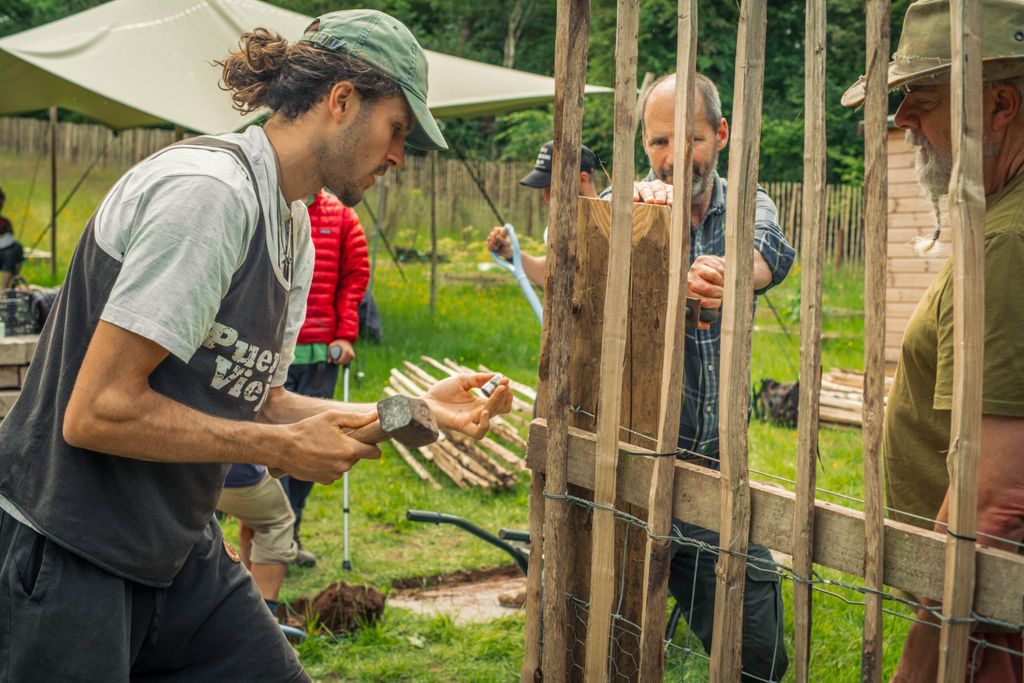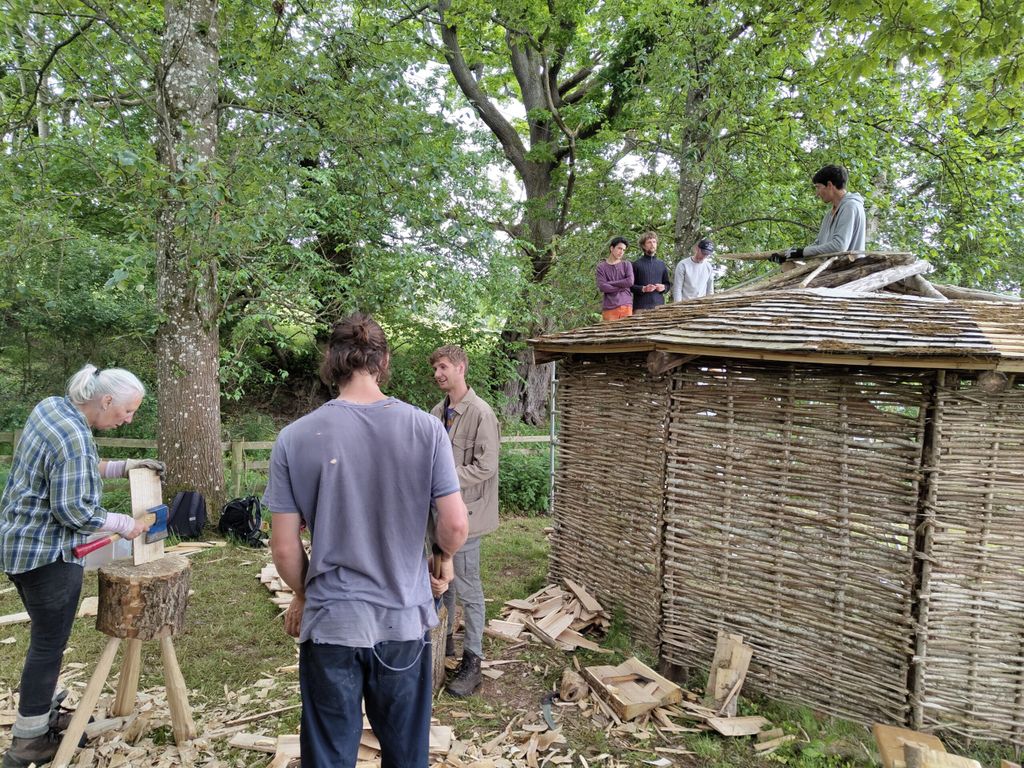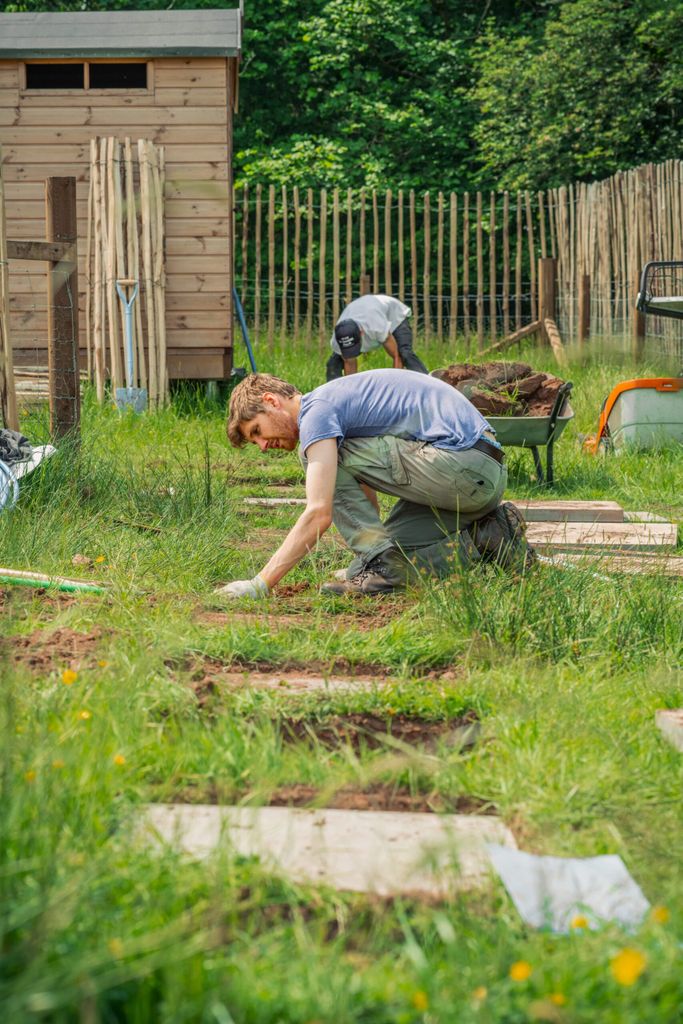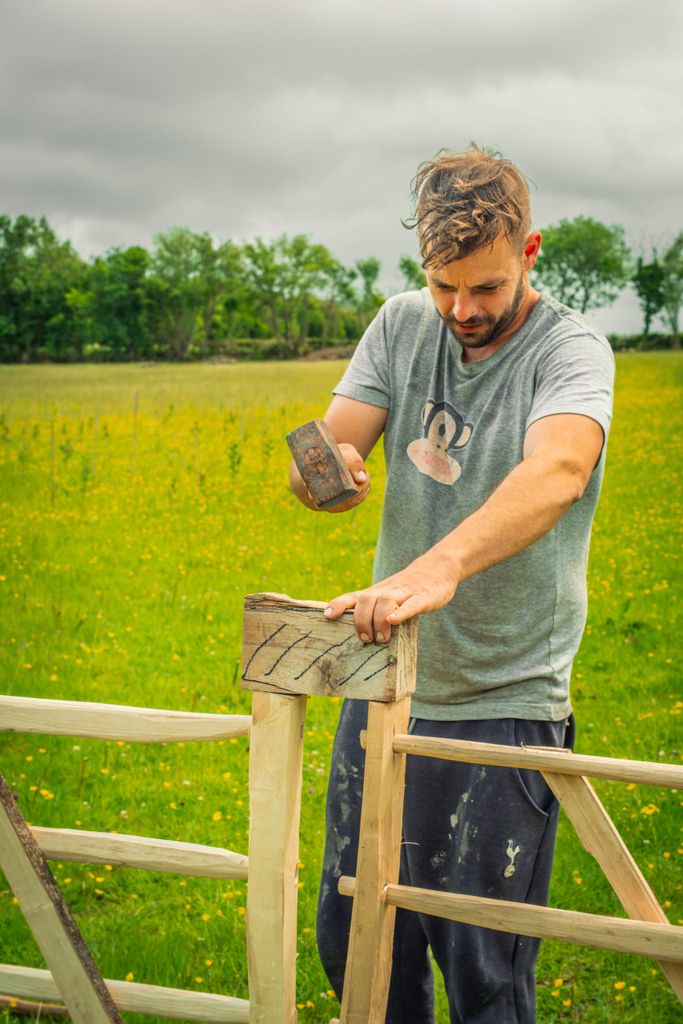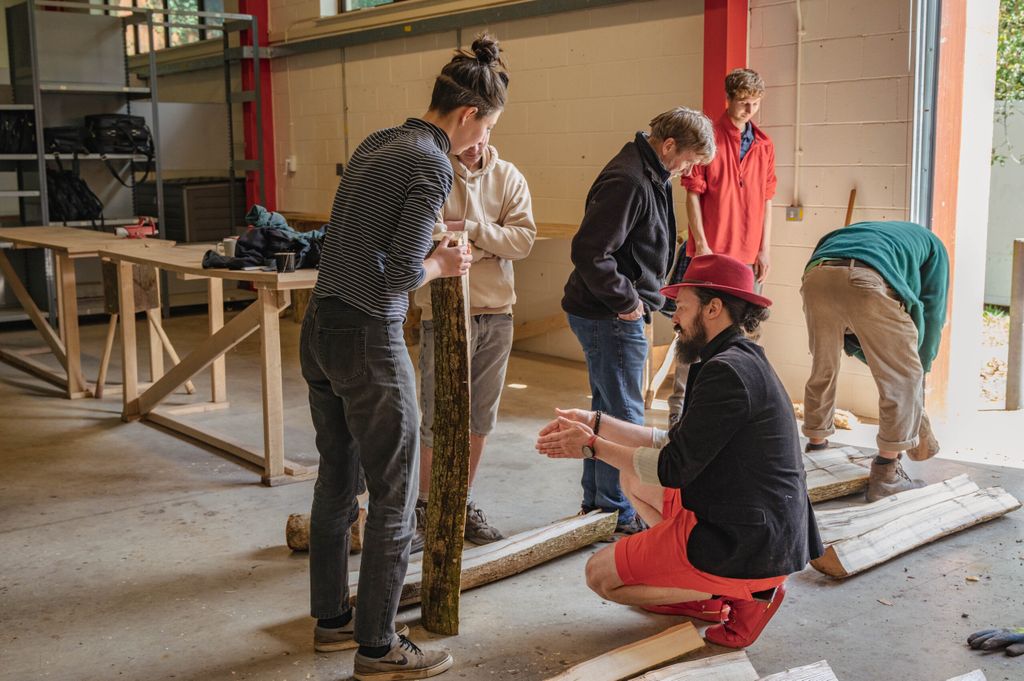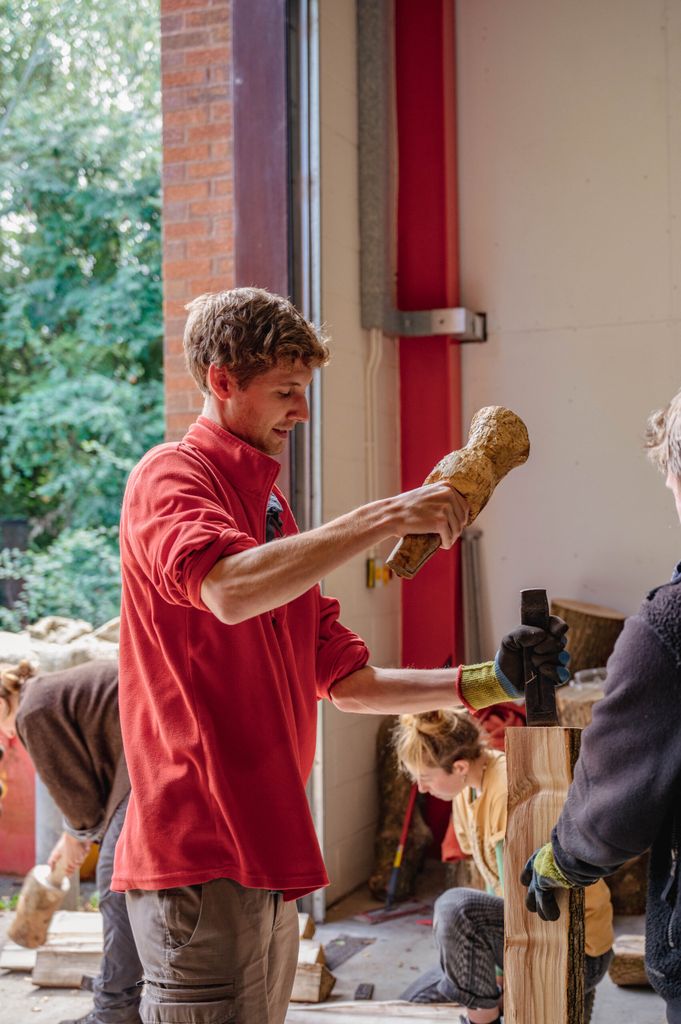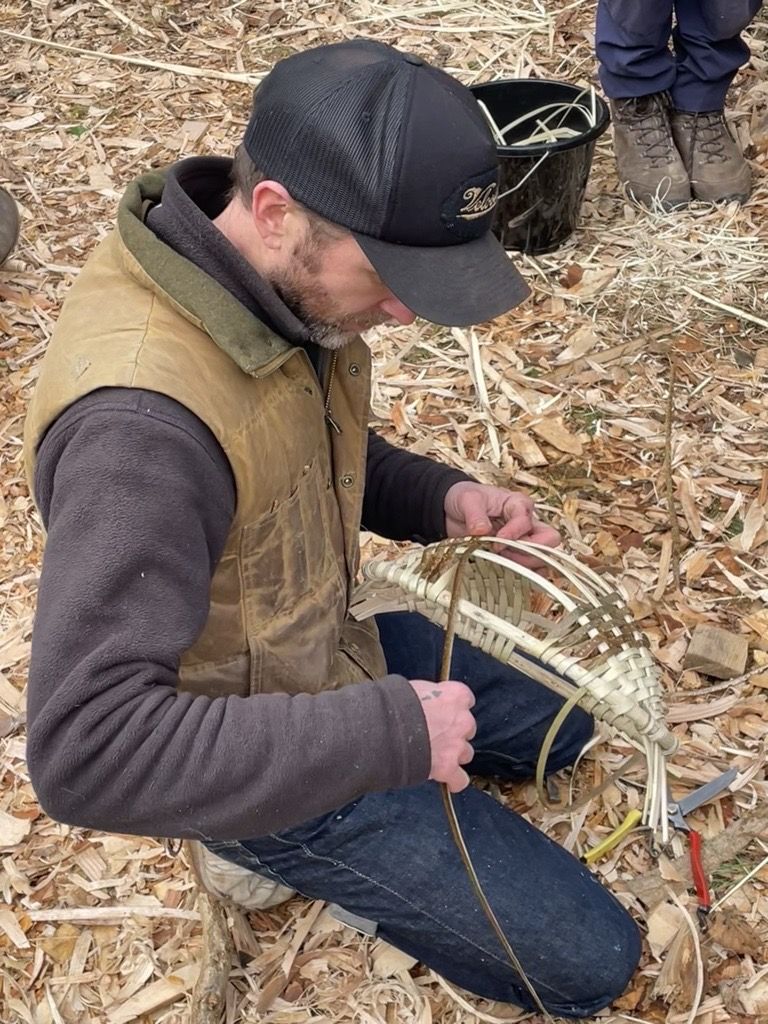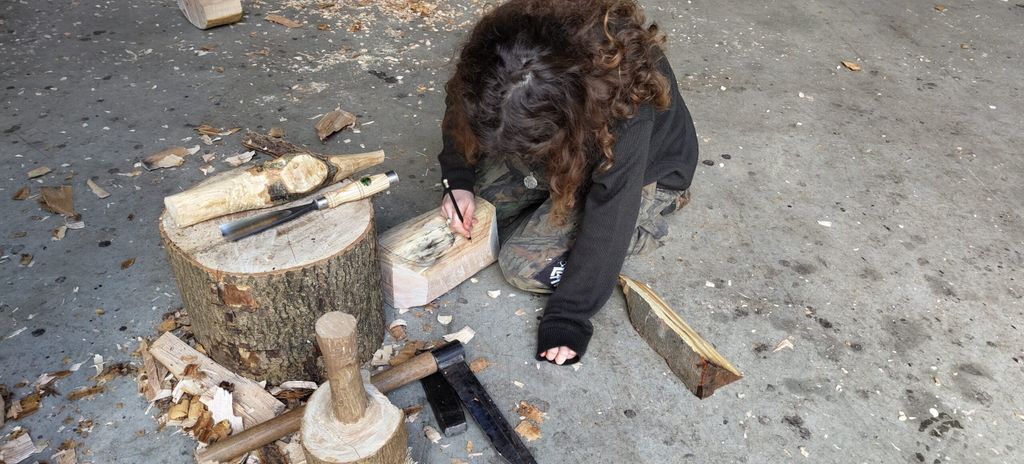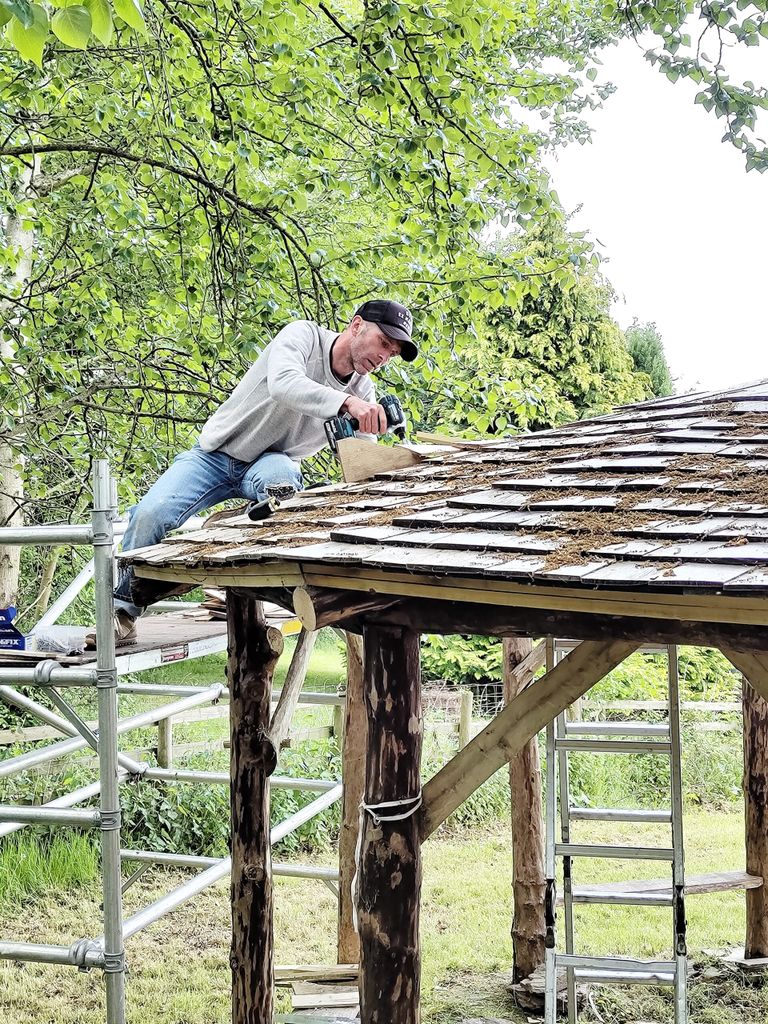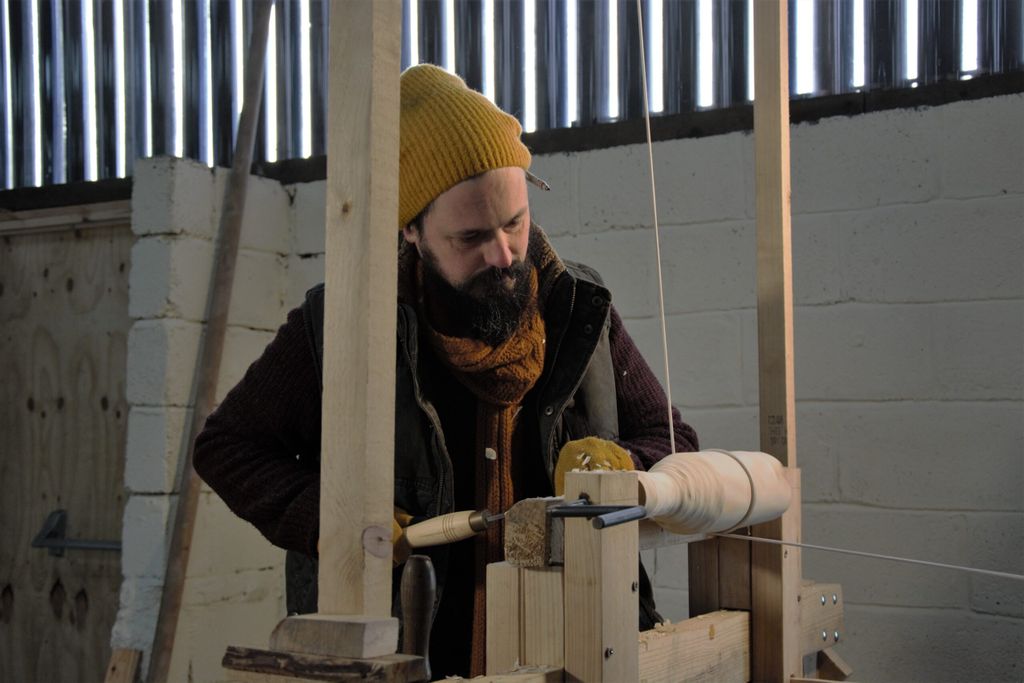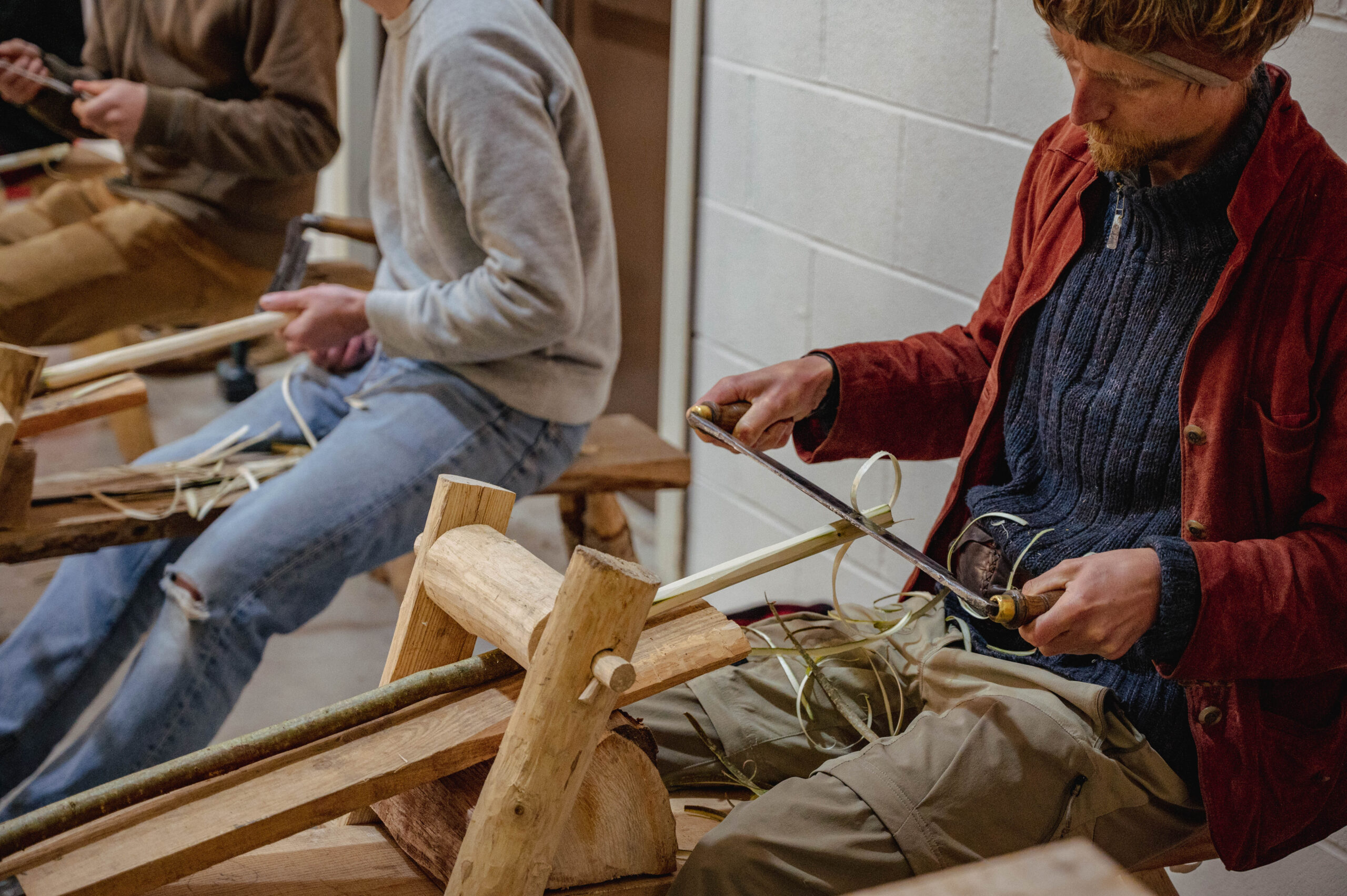
Coppicing & Greenwood Trades
Level 2 Diploma
Course Introduction
Our Coppicing and Greenwood Trades qualification will help you to develop skills and knowledge for a successful and rewarding career in the trees and timber sector.
A hands-on vocational course designed to equip you with practical skills in traditional woodland management and greenwood crafts. This unique programme allows you to work directly with the land, learning environmentally conscious methods of managing woodlands with minimum impact, undertaking natural flood management schemes, improving biodiversity, and honing your craft skills with sustainable greenwood use.
This course is offered in partnership with NPTC Group of Colleges.
WHAT IS COPPICING?
Coppicing is an ancient form of woodland management that uses nature’s ability to regenerate continually to harvest wood from a living tree. It involves periodically cutting trees down to ground level which promotes vigorous regrowth, creating a sustainable supply of wood which can be used to produce both products and energy. Coppicing is also fantastic for increasing the lifespan of trees, improving tree health and promoting biodiversity!
We will resurrect old coppice woodlands by restoring them, and plant trees to create new ones.
What will I learn?
Modules covered include the following, each will have a particular focus on sustainability:
- Sharpen and maintain edged hand tools
- Carry out maintenance of chainsaw and cutting system
- Cut, process and extract coppice
- Identify tree species and their properties
- Fell and process trees up to 380mm
- Control pollution incidents
- Process coppice materials and greenwood products
- Plant Trees
- Cross-cut timber using a chainsaw
- Monitoring and maintaining health and safety
- Prepare and produce charcoal
- Hedgelaying
Within this course, students will also undertake an external Chainsaw Maintenance and Felling Course, providing you with an additional, sought-after qualification. This involves 5 days’ intensive training, followed by a practical assessment and will be separate from your normal classes. You will be informed of the dates with plenty of notice.
Why study Sustainable Coppicing and Green Wood Work Skills?
You will study in beautiful and unique woodland settings. This course is ideal for students who want to further their experience of working in forestry to increase their ability and confidence, or for anyone with a passion for nature, craft, and sustainability.
Graduates from this course can pursue a variety of career pathways or self-employment opportunities in roles such as:
- Woodworker
- Forestry Worker
- Tree Surgeon
- Arborist Assistant
- Woodland Conservation Officer
- Environmental Ranger
- Countryside Ranger or National Park Warden
You can also progress to further study, including:
- Level 3 or higher in Green Woodworking and Coppicing, Forestry and Arboriculture, Agroecology and Land Management, Environmental Conservation or Woodland and Wildlife Management courses
- Use this qualification towards entry to the BMC undergraduate course, BA (Hons) Sustainable Futures: Arts, Ecology and Systems Change
Why Study at BMC
- Our course tutors are inspired teachers with extensive experience from a broad spectrum of forestry, coppicing and green woodworking, bringing innovative techniques and unique knowledge.
- No exams! You will produce a portfolio of evidence throughout the year and be assessed via practical observations, or brief oral tests.
- In unique learning environments, learn real-world practical skills that will help you achieve your goals in the future.
- As a part of your course, you will undertake the BMC Change in Practice Level 2 module 1-day per week, which will enable you to develop your understanding and skills around sustainable development and employability. In this module, you will cover a diverse range of topics, such as ecosystems and biodiversity, active citizenship and project development.
- Your learning experience will be enhanced through practical activities, field trips, guest lectures, and projects relating to your subject.
- Students under the age of 18 without Grade 4/ C or above in English and Maths at GCSE level can opt for additional teaching and support to study for these qualifications alongside their course.
*Courses are subject to change without notice. Known as C&G Work-Based Trees & Timber.
Location
Talgarth
Tuition Time
3 days per week, Wednesday to Friday
Course Length
1 year from September to July
Minimum Age
16 years (no maximum age)
Entry Requirements
No formal grades required. but you should be comfortable working at GCSE standard and be able to use basic IT including internet and email access.
Cost
Tuition is fully funded. You will just need to ensure you can cover your own costs of living for the duration of the course.
Kit Requirements
Warm waterproof clothing and shoes for working outdoors, and chainsaw safe trousers, boots, helmet, and gloves.
Downloads
-
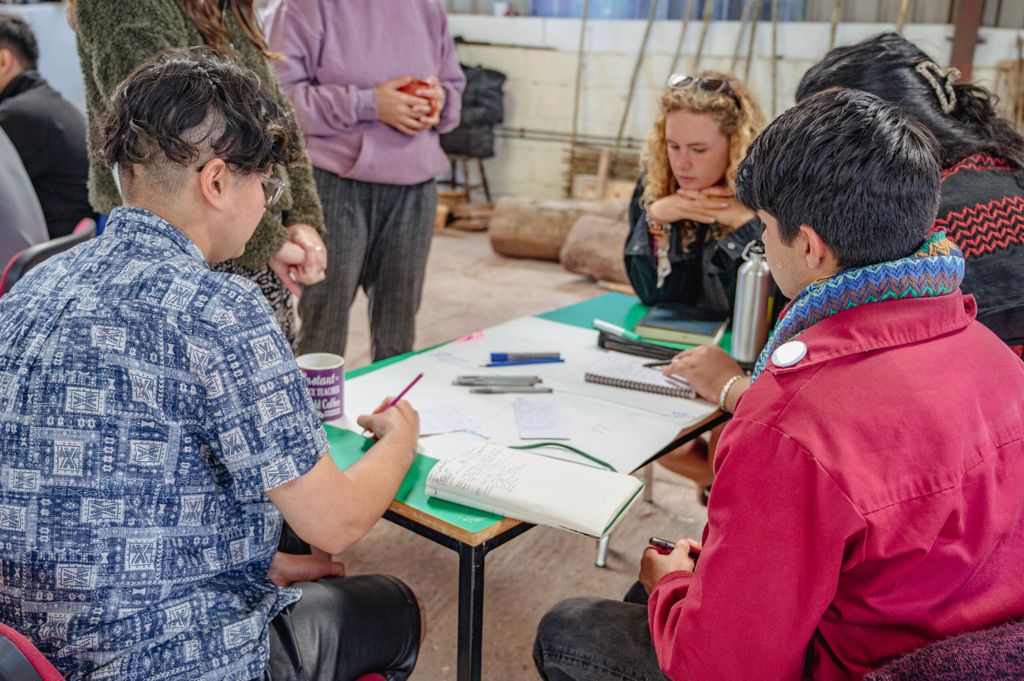
Apply
Apply now for BA (Hons) Sustainable Futures: Arts, Ecology and Systems Change! Further Education Applications for a September 2025 start are now closed, but applications are still open for January-starting courses!
-
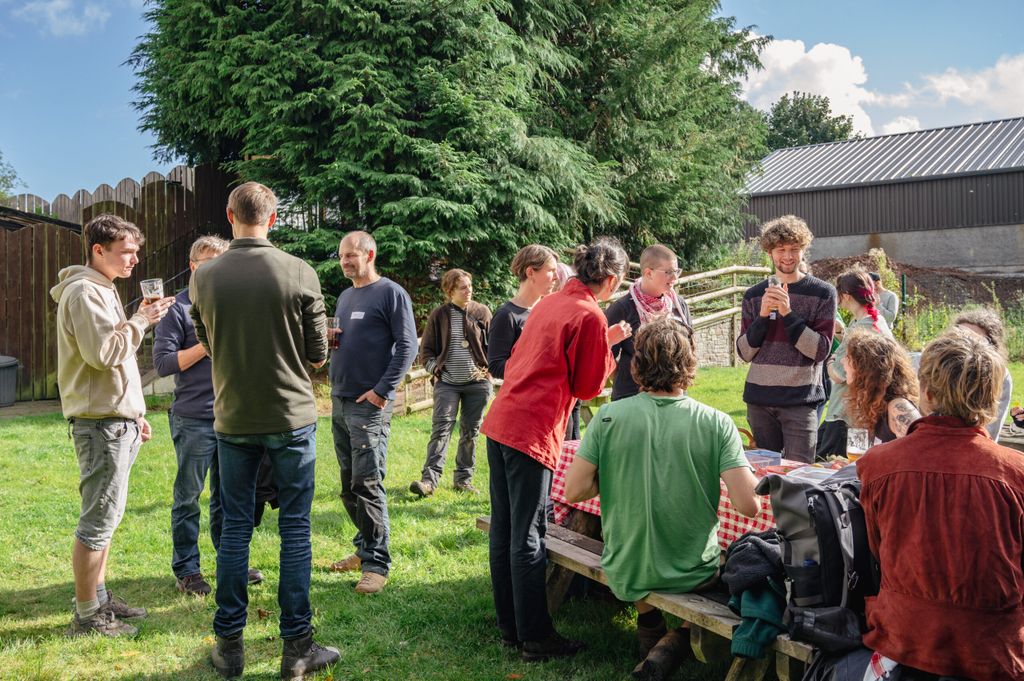
Student Life
At Black Mountains College (BMC), student life is as unique and transformative as the education itself. Whether you’re studying for a degree in Sustainable Futures or completing a vocational course, your time here will be connected to nature, community, and hands-on learning.
The BMC Prospectus
Download the Black Mountains College prospectus for an overview of our courses, campuses, and vibrant student life
Visit us
Come along to one of our Discovery Days or Campus Tours to explore our campuses and meet your tutors
